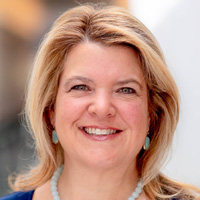Tax-Efficient Tips for 2021’s Charitable Giving Season
With only a few weeks left in the year, giving season is upon us. To make the most of your gift, consider one of these tax-smart strategies.


Profit and prosper with the best of Kiplinger's advice on investing, taxes, retirement, personal finance and much more. Delivered daily. Enter your email in the box and click Sign Me Up.
You are now subscribed
Your newsletter sign-up was successful
Want to add more newsletters?

Delivered daily
Kiplinger Today
Profit and prosper with the best of Kiplinger's advice on investing, taxes, retirement, personal finance and much more delivered daily. Smart money moves start here.

Sent five days a week
Kiplinger A Step Ahead
Get practical help to make better financial decisions in your everyday life, from spending to savings on top deals.

Delivered daily
Kiplinger Closing Bell
Get today's biggest financial and investing headlines delivered to your inbox every day the U.S. stock market is open.

Sent twice a week
Kiplinger Adviser Intel
Financial pros across the country share best practices and fresh tactics to preserve and grow your wealth.

Delivered weekly
Kiplinger Tax Tips
Trim your federal and state tax bills with practical tax-planning and tax-cutting strategies.

Sent twice a week
Kiplinger Retirement Tips
Your twice-a-week guide to planning and enjoying a financially secure and richly rewarding retirement

Sent bimonthly.
Kiplinger Adviser Angle
Insights for advisers, wealth managers and other financial professionals.

Sent twice a week
Kiplinger Investing Weekly
Your twice-a-week roundup of promising stocks, funds, companies and industries you should consider, ones you should avoid, and why.

Sent weekly for six weeks
Kiplinger Invest for Retirement
Your step-by-step six-part series on how to invest for retirement, from devising a successful strategy to exactly which investments to choose.
Spurred in part by the pandemic, a record $471 billion was donated to U.S. charities in 2020, according to Giving USA. I expect that trend to continue this year, as individuals, couples and families are inspired, perhaps more so than years prior, to make an impact on their communities and the causes they care about.
For those planning to contribute to charitable organizations this year, consider these strategies to make the most tax-efficient donation.
A check may not be the smartest gift
A common mistake I often see novice donors make is their preference to cut a check to a charity, assuming it’s the simplest and most effective route. Given the stock market’s solid 10-year run, donors may want to instead consider gifting appreciated securities, or concentrated positions if they are seeking to trim portfolio holdings.
From just $107.88 $24.99 for Kiplinger Personal Finance
Become a smarter, better informed investor. Subscribe from just $107.88 $24.99, plus get up to 4 Special Issues

Sign up for Kiplinger’s Free Newsletters
Profit and prosper with the best of expert advice on investing, taxes, retirement, personal finance and more - straight to your e-mail.
Profit and prosper with the best of expert advice - straight to your e-mail.
When an individual donates, for example, $5,000 in appreciated securities, versus $5,000 in cash, they reap a handful of benefits. Not only does this rebalance their portfolio, but it provides a tax deduction incentive – the donation can reduce taxable income, but only if the recipient organization qualifies (use this IRS tool to search all tax-exempt charities). Additionally, the donation allows the donor to avoid paying capital gains tax on the security. The charity also avoids taxes when they sell the donated investment.
For some novice philanthropists, it’s tempting to gift cash, however, gifting securities can be the far more strategic and tax-efficient approach for the donor, and encourage further giving to benefit charitable organizations.
Expanding a charitable footprint
According to the Giving USA report, donations to education, human services and environmental and animal organizations were estimated to have the highest increases in 2020. For my clients who are interested in expanding their giving – whether increasing the amount they give or opting to donate to multiple causes – I’ve recommended they use the Nonprofit Aid Visualizer (NAVI), powered by Vanguard Charitable. This tool pinpoints charities most impacted by the pandemic, giving individuals a clear picture of the giving landscape and organizations most in need.
For an experienced philanthropist who may be inspired to donate more this year than in previous years, they may consider “stacking” a donation. This allows the ability to deduct up to 30% of a donor’s adjusted gross income (AGI) by gifting appreciated securities, and then another 30% in cash (or another 20% in cash if donating to a donor advised fund), providing a tax deduction on both the securities and cash gifts. While the advantage of stacking allows a donor to utilize appreciated securities, it is worth noting that for the extremely philanthropic, the CARES Act and Coronavirus Stimulus Act increased the ability to deduct up to 100% of a donor’s AGI if contributing cash to an operating charity this year.
Aside from stacking, another strategy for a seasoned donor is gifting securities through a donor advised fund (DAF), a charitable giving account that allows a donor to invest, grow and give assets.
If a donor is planning to give to multiple charities this year, but doesn’t exactly know what causes to contribute to, a DAF is a good parking spot. The donor can take the immediate tax deduction once the DAF is funded, and decide which charities receive the funds at a future date. Additionally, a DAF enables a donor to piecemeal their donations out. For example, with $25,000 in the DAF, that amount can be gifted in full to one charity or separated to five charities receiving $5,000 each — and the donations can be made over the course of several years.
Age-specific considerations
Aside from philanthropic experience, there are also tax-efficient charitable giving strategies tied to a donor’s age. A qualified charitable distribution (QCD) is a great way to gift dollars to charity for donors who are at least 70½ (Question: Just want to make sure this shouldn’t be 72. Answer is YES.) at the time of the distribution. This strategy allows a donor to utilize dollars from their IRA to donate directly to a qualified organization. For those in a high tax bracket, this can be a tax-efficient way to spend down an IRA while avoiding ordinary income taxes – which would otherwise be due on distributions – since the dollars are being donated. Additionally, annual required minimum distributions (RMDs) can be donated to a qualified charity (up to $100,000), which can minimize the RMD’s tax consequences.
2021 could be another robust year for charitable giving, as donors remain inspired to help their local communities and causes in need of resources due to the continued pandemic impact. With only a few weeks left in the year, donors of all wealth levels and philanthropic experience should think through the different gifting tactics available to them to maximize the tax-efficiency of their donations for both themselves and their recipient organizations.
Profit and prosper with the best of Kiplinger's advice on investing, taxes, retirement, personal finance and much more. Delivered daily. Enter your email in the box and click Sign Me Up.

Julie Virta, CFP®, CFA, CTFA is a senior financial adviser with Vanguard Personal Advisor Services. She specializes in creating customized investment and financial planning solutions for her clients and is particularly well-versed on comprehensive wealth management and legacy planning for multi-generational families. A Boston College graduate, Virta has over 25 years of industry experience and is a member of the CFA Society of Philadelphia and Boston College Alumni Association.
-
 4 Estate Planning Documents Every High-Net-Worth Family Needs
4 Estate Planning Documents Every High-Net-Worth Family NeedsThe key to successful estate planning for HNW families isn't just drafting these four documents, but ensuring they're current and immediately accessible.
-
 Love and Legacy: What Couples Rarely Talk About (But Should)
Love and Legacy: What Couples Rarely Talk About (But Should)Couples who talk openly about finances, including estate planning, are more likely to head into retirement joyfully. How can you get the conversation going?
-
 How to Get the Fair Value for Your Shares in This Situation
How to Get the Fair Value for Your Shares in This SituationWhen a sale of substantially all corporate assets is approved by majority vote, shareholders on the losing side of the vote should understand their rights.
-
 The 4 Estate Planning Documents Every High-Net-Worth Family Needs (Not Just a Will)
The 4 Estate Planning Documents Every High-Net-Worth Family Needs (Not Just a Will)The key to successful estate planning for HNW families isn't just drafting these four documents, but ensuring they're current and immediately accessible.
-
 Love and Legacy: What Couples Rarely Talk About (But Should)
Love and Legacy: What Couples Rarely Talk About (But Should)Couples who talk openly about finances, including estate planning, are more likely to head into retirement joyfully. How can you get the conversation going?
-
 How to Get the Fair Value for Your Shares When You Are in the Minority Vote on a Sale of Substantially All Corporate Assets
How to Get the Fair Value for Your Shares When You Are in the Minority Vote on a Sale of Substantially All Corporate AssetsWhen a sale of substantially all corporate assets is approved by majority vote, shareholders on the losing side of the vote should understand their rights.
-
 How to Add a Pet Trust to Your Estate Plan: Don't Leave Your Best Friend to Chance
How to Add a Pet Trust to Your Estate Plan: Don't Leave Your Best Friend to ChanceAdding a pet trust to your estate plan can ensure your pets are properly looked after when you're no longer able to care for them. This is how to go about it.
-
 Want to Avoid Leaving Chaos in Your Wake? Don't Leave Behind an Outdated Estate Plan
Want to Avoid Leaving Chaos in Your Wake? Don't Leave Behind an Outdated Estate PlanAn outdated or incomplete estate plan could cause confusion for those handling your affairs at a difficult time. This guide highlights what to update and when.
-
 I'm a Financial Adviser: This Is Why I Became an Advocate for Fee-Only Financial Advice
I'm a Financial Adviser: This Is Why I Became an Advocate for Fee-Only Financial AdviceCan financial advisers who earn commissions on product sales give clients the best advice? For one professional, changing track was the clear choice.
-
 I Met With 100-Plus Advisers to Develop This Road Map for Adopting AI
I Met With 100-Plus Advisers to Develop This Road Map for Adopting AIFor financial advisers eager to embrace AI but unsure where to start, this road map will help you integrate the right tools and safeguards into your work.
-
 The Referral Revolution: How to Grow Your Business With Trust
The Referral Revolution: How to Grow Your Business With TrustYou can attract ideal clients by focusing on value and leveraging your current relationships to create a referral-based practice.